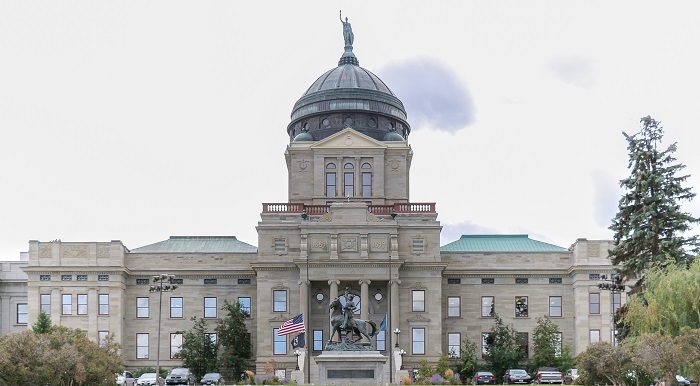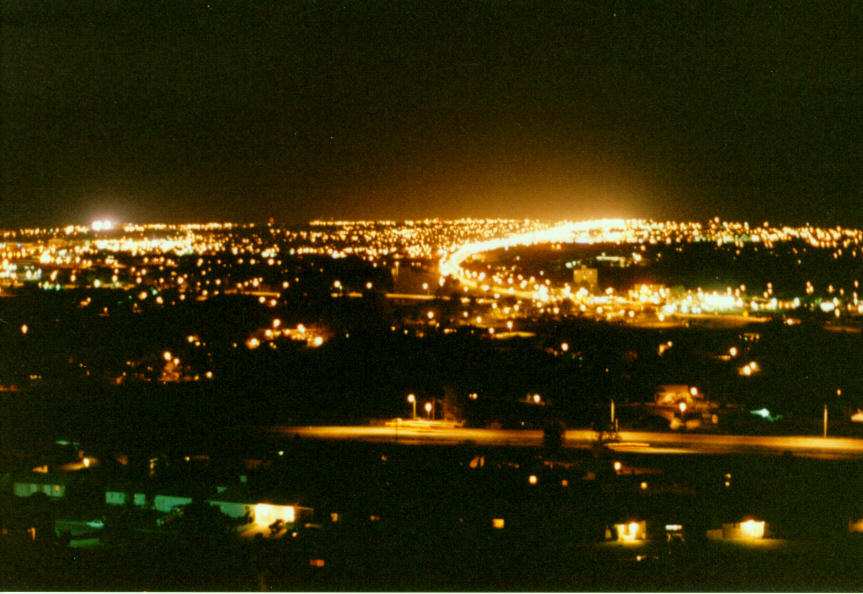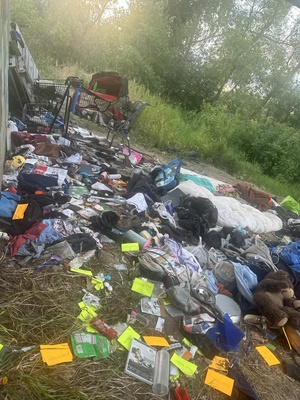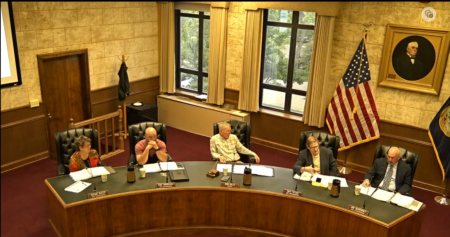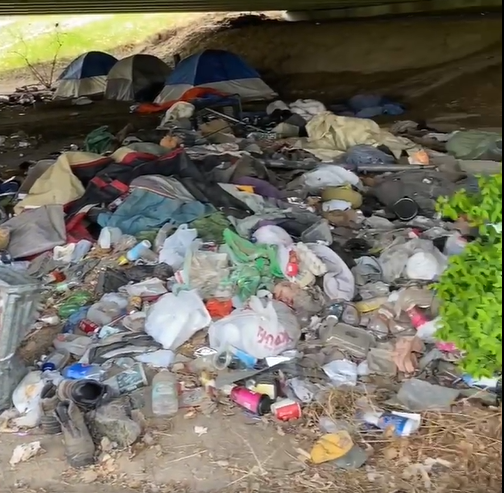Editors note: the following is a letter from Great Falls City Commissioner Joe McKenney to the Great Falls Association of Realtors and Montana Association of Realtors. Overview The purpose of this memorandum is to express strong opposition to HB20 from a public safety perspective. This bill proposes changing voted levies from being stated in mills…
Category: City Commission
Can The City Of Great Falls Reduce Spending?
Lat week the Great Falls City Commission passed the City’s Fiscal Year 2025 budget. You can view the budget details here. This year’s budget included a marginal tax increase for local property owners – $2.25 per month for a $300,000 home. I’ve received several general questions about how our budget works and so I’d like…
Great Falls Homeless Camp Garbage Dump
On Sunday I received the following message and picture from a Great Falls resident: “Hey Rick we went to watch 50 Watt Sun (at the Beacon) last night and under the train bridge this is what we saw! Who need to clean this mess up? I hate that this is happening in the city I…
City Property Tax Increase By $2.63 Per Month For $300,000 Home
Last week the Great Falls City Commission voted 4-0 (Mayor Kelly was not present) to accept the City Manager’s FY24 budget which includes adopting the proposed total allowable property tax increase of 4.38%. The approved proposal includes the 1.92% permissive medical levy and the 2.46% inflationary factor increases. Those increases would equate to the following…
GFPD Issued Press Release Last Week And Statement Last Night On Gun Store Raid
There have been a number of questions from the community about the IRS/ATF raid on a Great Falls gun store. In response, here is some further information concerning the involvement of the Great Falls Police Department in that event. First here is a a screenshot of the email that city commissioners received from GFPD Captain…
Filth And Trash Filled Homeless Camp In Great Falls
Great Falls City Commissioner and mayoral candidate Joe McKenney posted a video on Facebook over the weekend showing homeless camp next to a large mound of garbage under the Sun River bridge in Great Falls. The situation was brought to the attention of the Great Falls city commission at their May 2 work session by…
Great Falls Local Budget Realities
With a new fiscal year and budget for the City of Great Falls right around the corner, FY24 starts July 1, 2023, I thought it would be a good idea to present a brief refresher on local budget realities. The Great Falls City Commission is very limited by state law when it comes to raising…
Ban Gas Stoves In Great Falls?
Last week I received an email in my City Commission inbox from a city resident urging a phase-out of fossil fuels for cooking and heating from our homes and businesses right here in Great Falls. Below is the text of the email as well as my response. I’m leaving out the senders name here, even…
Great Falls Welcomes New American Citizens
On Thursday, December 15 I had the honor and privilege to represent the City of Great Falls and the citizens of Great Falls in welcoming 21 newly minted American citizens to our country, state, and community. The naturalization swearing-in and ceremony was held at the federal courthouse here in Great Falls with the Honorable Brian…
Debunking The Bunk: No, GF Taxes Aren’t Going Up 191%
This is the first in what will be a regular column on E-City Beat in which I will attempt to debunk some of the rumors, urban myths, misinformation, and flat-out bunk making the rounds in Great Falls on social media, information/news outlets, and ‘word on the street’. We’ll start with the recent local rumor that…


